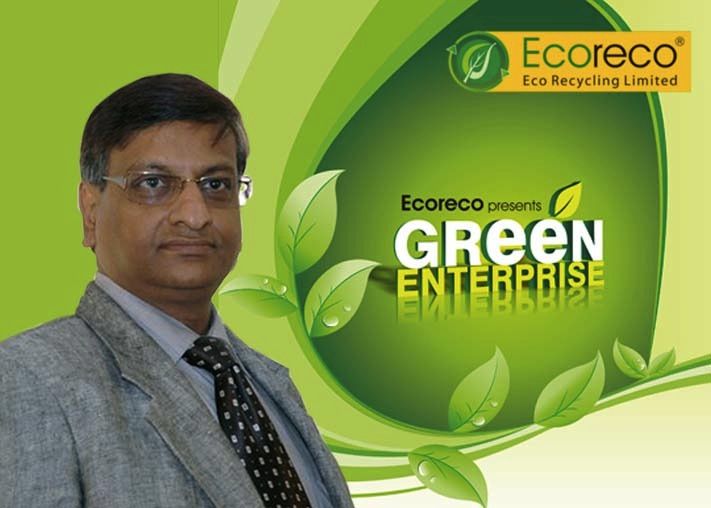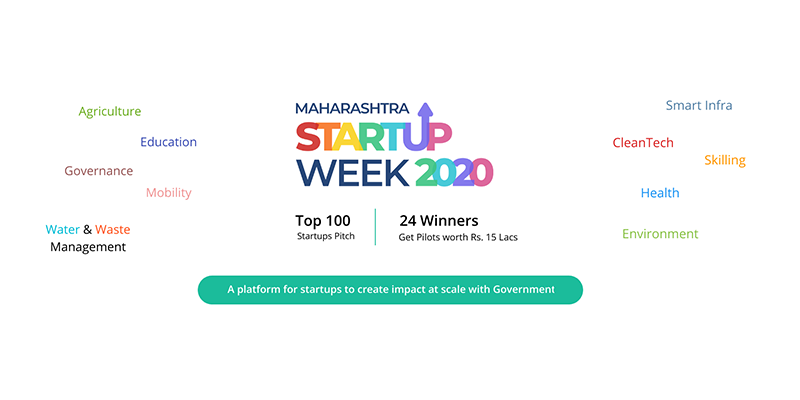Ecoreco: the company that could help India save $ 600 m per year in e-waste management

India is fast emerging as a nation where the consumption of electronic items and devices have increased manifold. But this creates a problem that is often forgotten: how do we manage electronic waste? Even if India is using electronic disposal since the last 60 years, there is no proper e-waste management system yet. Our country generates 1,46,180 tons of e-waste per year, out of which 60% comes from 65 cities. And the situation is getting worse with the increase in demand for PCs, telephones and TVs.We spoke to BK Soni, CEO of Ecoreco, who has developed a technology that can help India save $600 million per year through e-waste management.
After his graduation in Kolkata, BK shifted to Mumbai where he became a stock broker and a consultant till 2004. He had a great career, but then a friend introduced him to e-waste management and he was blown away by the possibilities in this new sector. “In the beginning, around 2005, I focused a lot in researching the sector. I met people who were successfully managing e-waste units in the developed world. I visited some plants in USA & UK to understand the industry better and also improve the existing technology. I also went to one of the largest plant of e-waste recycling in Hamburg to see the status of international technology and in the same year attended E-scrap 2005 in Orlando and RWM in Birmingham UK,” says BK.
Armed with the knowledge, BK realised it was time to start his business. He imported some computers from the US and UK and started exporting to developing nations as Sri Lanka. “In this sector the initial investment was very big and costly. We needed to import technologies from Europe to solve problems of India and this was not easy at all,” adds BK.
The investment needed was very high, so Ecoreco successfully worked on the replication of an Indian technology for e-waste. In 2011, they produced a machine for processing e-waste that costs one million dollars, and compared to the billions of dollars invested in other parts of the world, proved to be a great success. “It was one of our best moments. We were able to create such a great technology for recovery of precious metals from PCB, which can be used for small quantities and be deployed anywhere in the World. That’s something unique about it,” explains BK.
Ecoreco’s technology can be sold to both public and private sectors. But working with the public sector is not an easy proposition. “They have two choices: investing a million dollars to buy the technology from Ecoreco or sending their e-wastes abroad. We usually choose the second option, while the first can give us an amazing return on investment. If we consider all the e-waste generated in India every year, we can save up to 500 million dollars per year. This will also allow us to stop importing some precious metals from other countries,” states BK.
According to BK, Ecoreco is facing four different challenges. “The first one is logistics. India is a large country and therefore reverse logistic at a reasonable cost is not easy. We need to pay to buy the e-waste material and alsopay for transport cost which represents 35-40% of the total. Another problem is due to the present legislation; till 2012 there was no policy for this sector and the current one is not effective enough. Liability (responsibility) is our third challenge, because everyone wants to shift the same on other either on producer or generator or government. Being a player in the market we are as responsible as consumers and producers for the final result. Lastly, the investment is really high and VCs are not interested to invest in this sector because they believe that it the segment is still controlled by unorganised players and rules in India are not very effective,” adds BK.

Unorganised players in this sector manage 90-95% of it, while organised ones manage just the rest. The new legislation aims to change this, but as BK explained, it is not effective yet. “In the organised sector there are just five to six other companies. We are the only ones traded in the stock exchange and in terms of branding values, geography and clients we are leading the market,” says BK.
BK has a realistic approach towards the future. “Unless there is implementation of the rules, the scenario will not be so beautiful. In all probability there will be 25% growth of the top line. We are working towards setting up of 25 collection & dismantling centres across the nation to feed the mother plant in Maharashtra,” says BK, adding that the only advise he can give to aspiring entrepreneurs is “Follow your passion, profession follows.”
For more information about Ecoreco visit their website









![[Funding alert] Bira 91 raises $30M led by Sequoia India and Sofina to fuel its growth](https://images.yourstory.com/cs/2/b87effd06a6611e9ad333f8a4777438f/Bira91-1587820283737.jpg)

